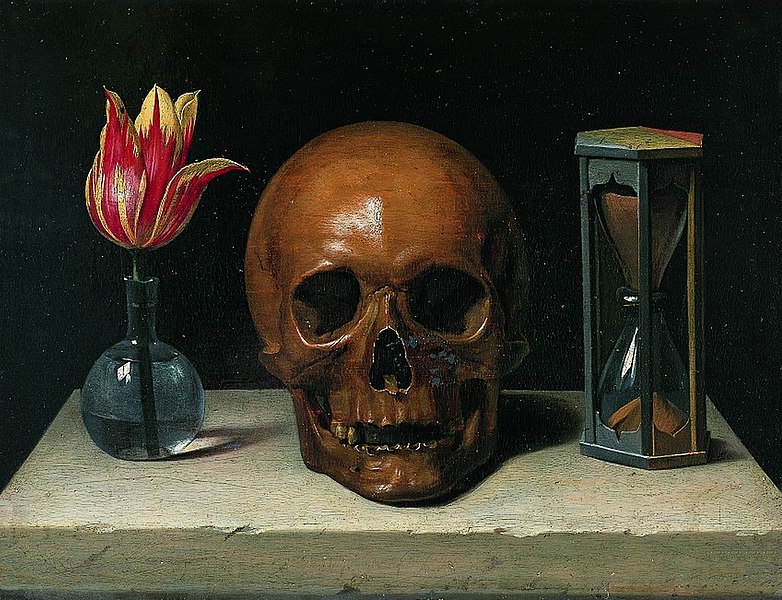Keep before your eyes from day to day
death and exile and all things that seem terrible, but death most of all, and
then you will never set your thoughts on what is low and will never desire
anything beyond measure.
—Epictetus,
The Handbook, Chapter 21 (tr
Matheson)
This is
another one of those Stoic passages that may at first seem morbid or pessimistic.
Remember that for the Stoic, neither death, nor exile, nor any other
circumstance is evil; it is our own estimation of them that will make them seem
evil. Rather we should keep death, and things that seem terrible, in mind not
to complain about suffering, misfortune, and loss, but to put all things in
their proper perspective.
If I can
keep my eyes fixed on the defining landmarks, I won’t lose my way, and if I can
remember the scope and scale of those crucial circumstances I must always be
ready to face, I will hardly sweat the small stuff.
I often
think of this in terms of an order or priorities, or what I call a measure of
magnitude. Perspective can be a tricky thing. The objects closest to us seem
the largest, and those furthest seem the smallest. But when I look through the
appearance to the reality, I will recognize that the mountain on the horizon is
far larger than the hand before my face.
So too,
the little vanities and obsessions of my daily life are as nothing in magnitude
to the defining milestones. Considering how I will react to the possibility of
losing everything external, or the certainty of my own death, is far more
important than worrying about petty offenses.
I can
now be far more secure in myself, far more serene, far happier when I have
prepared myself for all the impressions that seem terrible. I learn that they
aren’t terrible at all if I will only chose to manage them rightly, and I will
be troubled by the trifles of life even less. I shouldn’t think about death to
remind myself that it is bad, but rather to remind myself about everything that
is good.
Measures
of magnitude can therefore be opportunities for gratitude. For myself, I can
find so much greater peace when I think how silly so many of my concerns have
been. When we are young, we are frustrated when those older and wiser tell us
something we consider unbearable isn’t quite so bad after all, but yet we come
to the exact same conclusion when we have seen more of life.
Surely
death is something I shouldn’t worry about yet, something far in the future? It
may be, or it could just as easily be something that will come to me right now.
I think less about death being painful, or that it will end my existence, and
far more about how the knowledge that there will be an end to this life asks me
to consider how well I am living that life.
Am I
being a good man? Have I acted out of wisdom, temperance, courage, and justice?
Have I been inspired by love in all things? There is nothing as helpful as
reflecting upon my mortality to help me get my house in order. If I haven’t
been living as I know I should, then I can still change that right now, and
since I know that clock is ticking, there is no time like the present.
To think
of death, or of anything that seems a misfortune, is not to fear it; it is to
see the larger perspective, and to be grateful for every opportunity I am
given, whether in a long or a short life, to live with excellence.
Written in 6/1994
Image: Philippe de Champagne, Still-Life with Skull (1671)

No comments:
Post a Comment